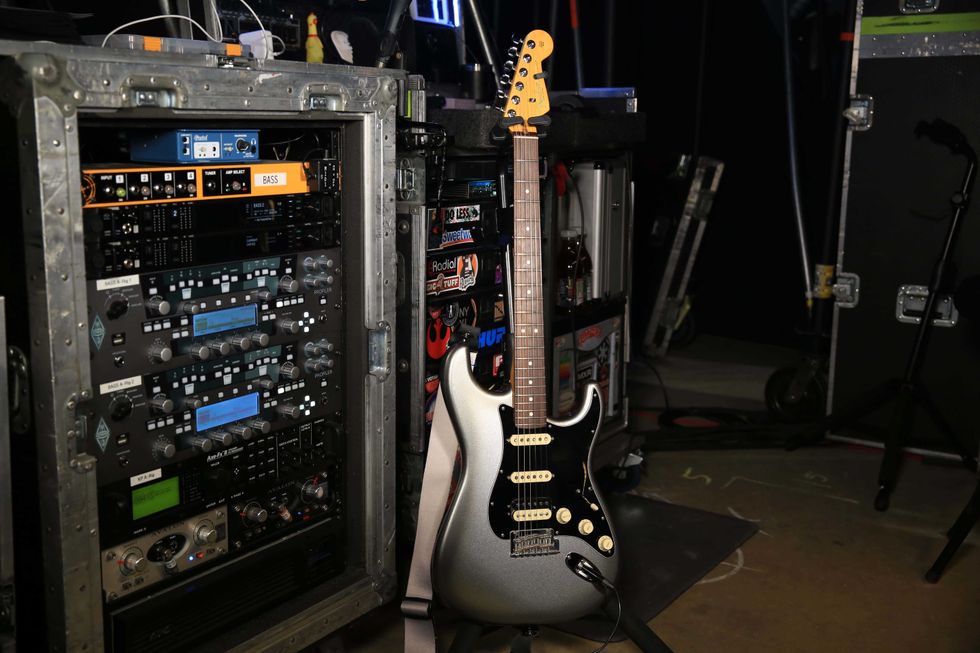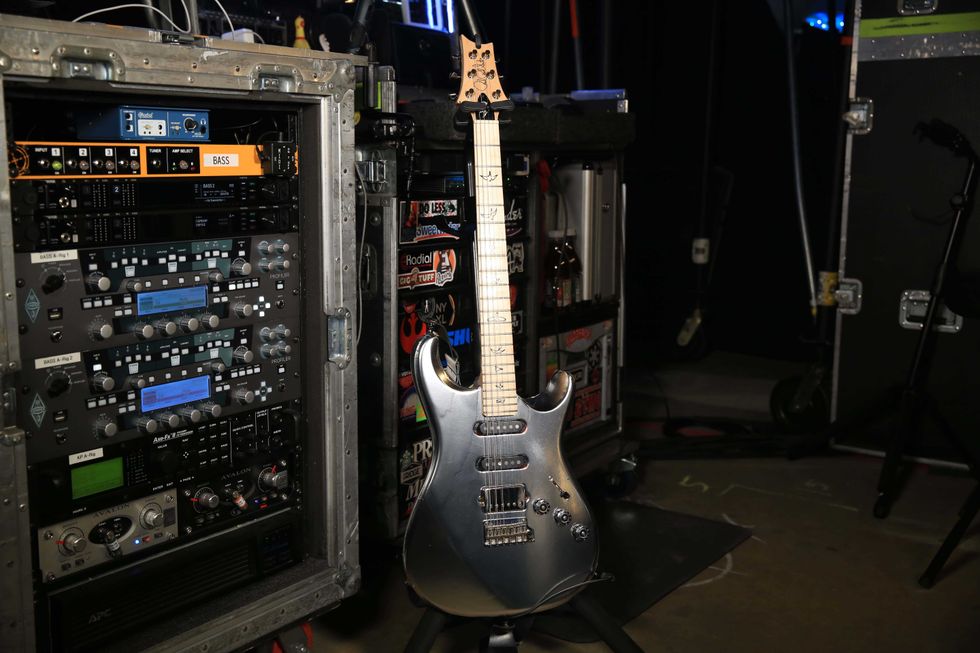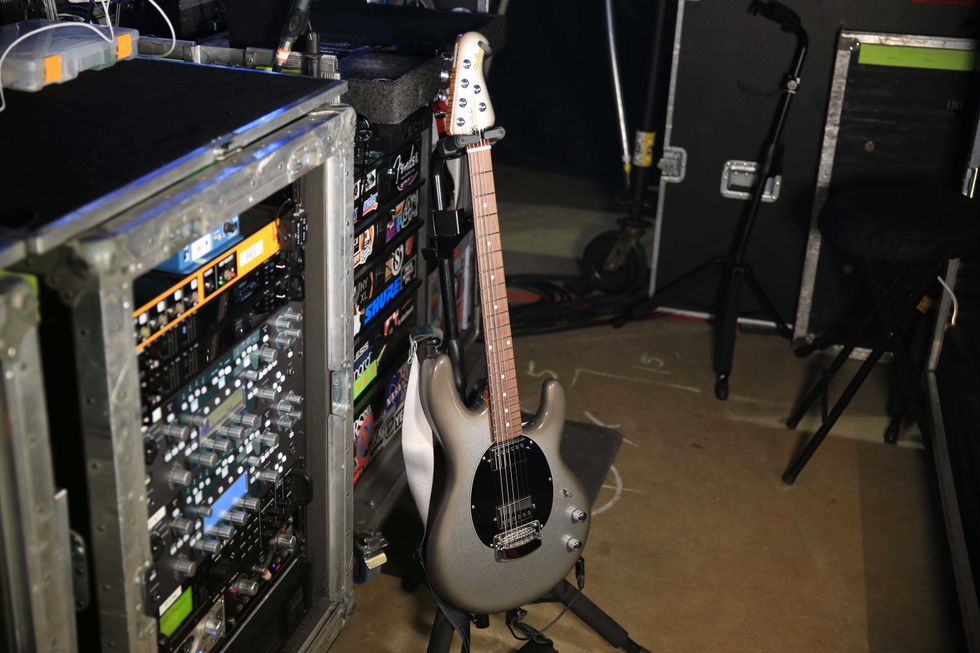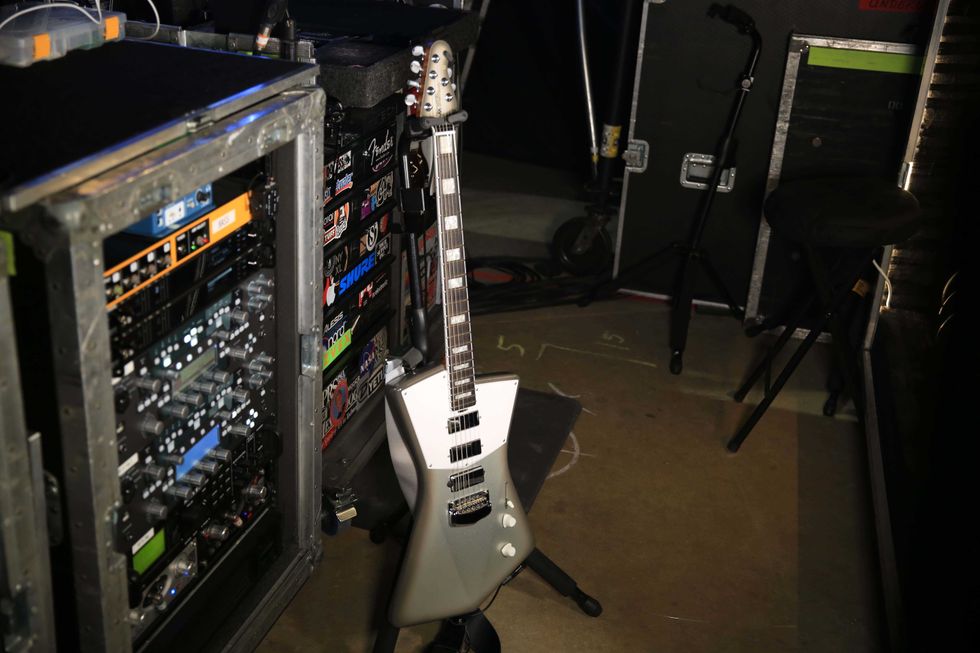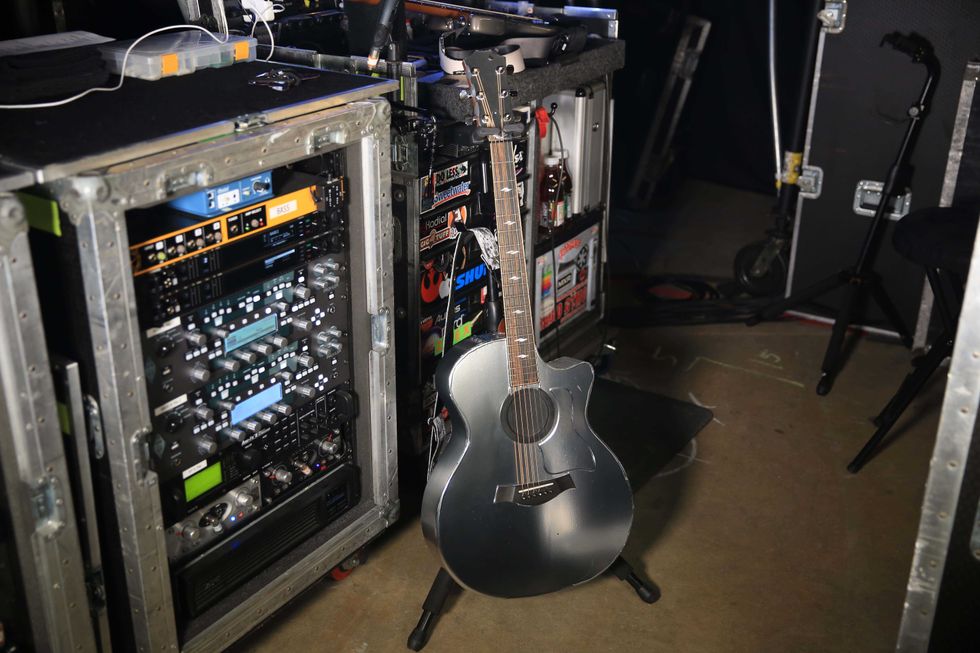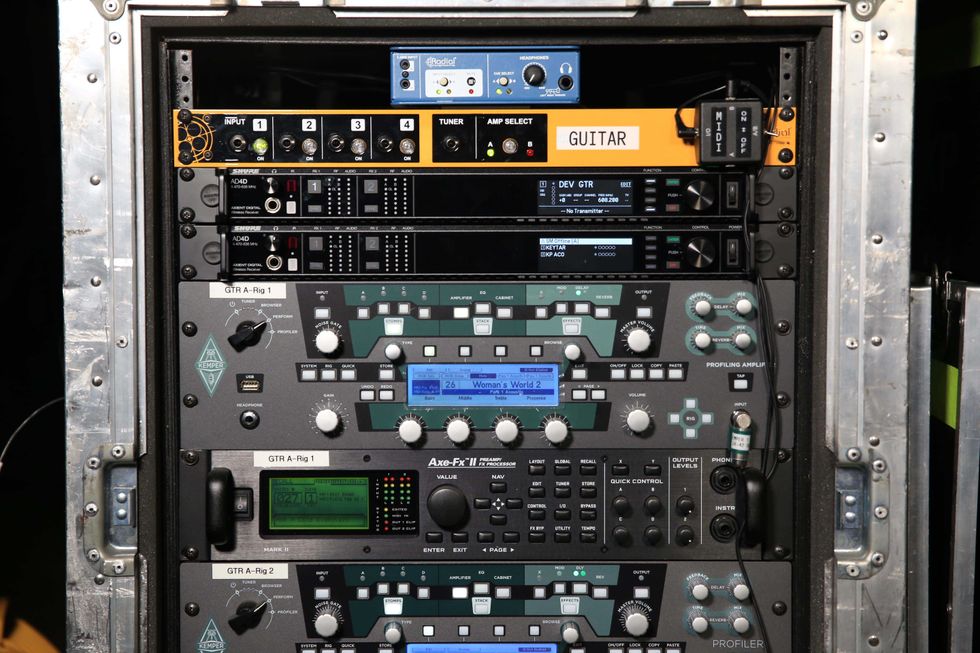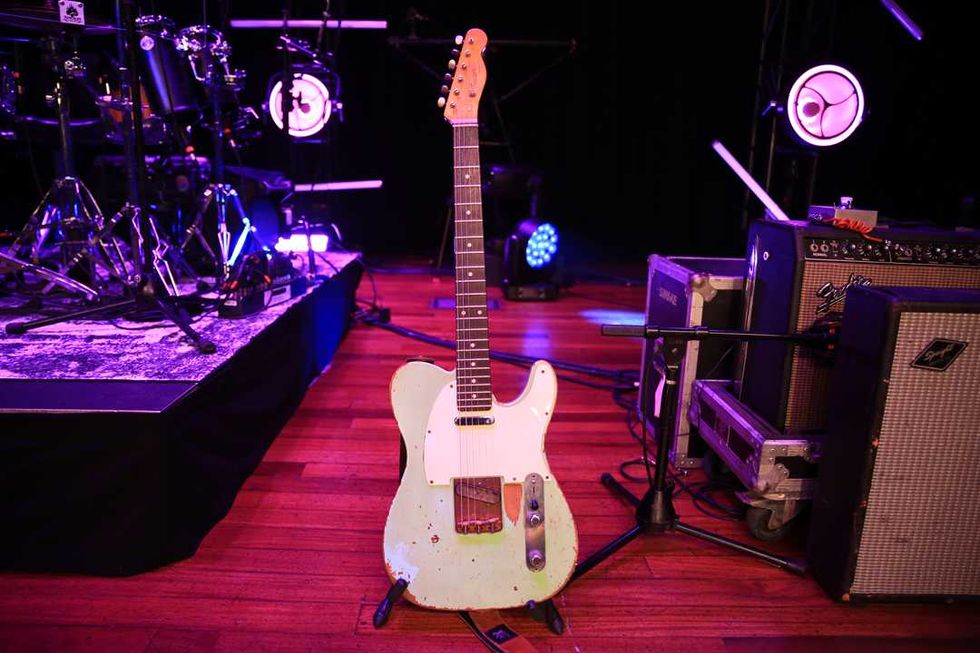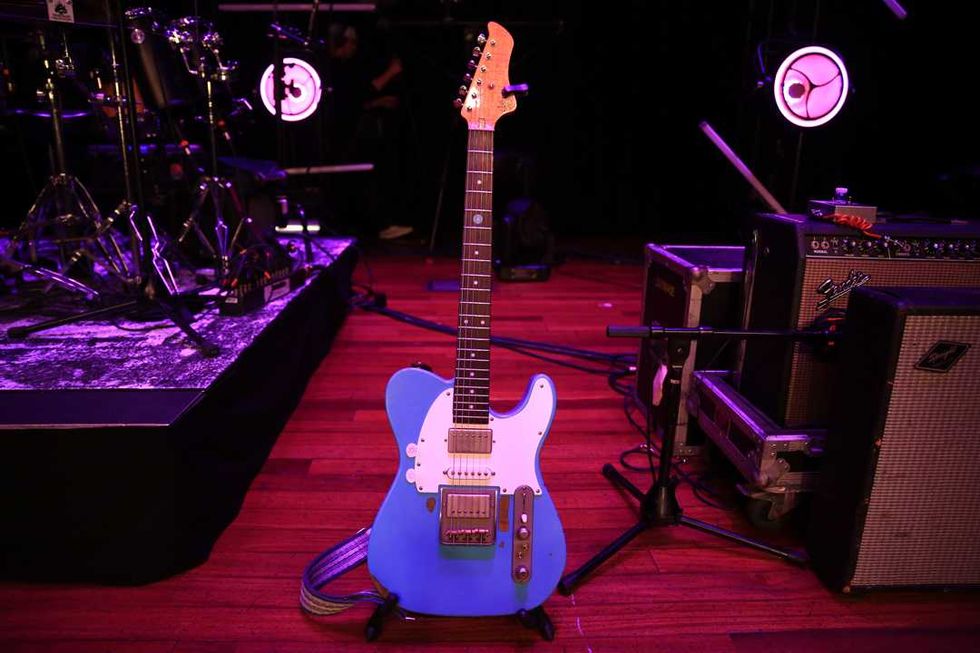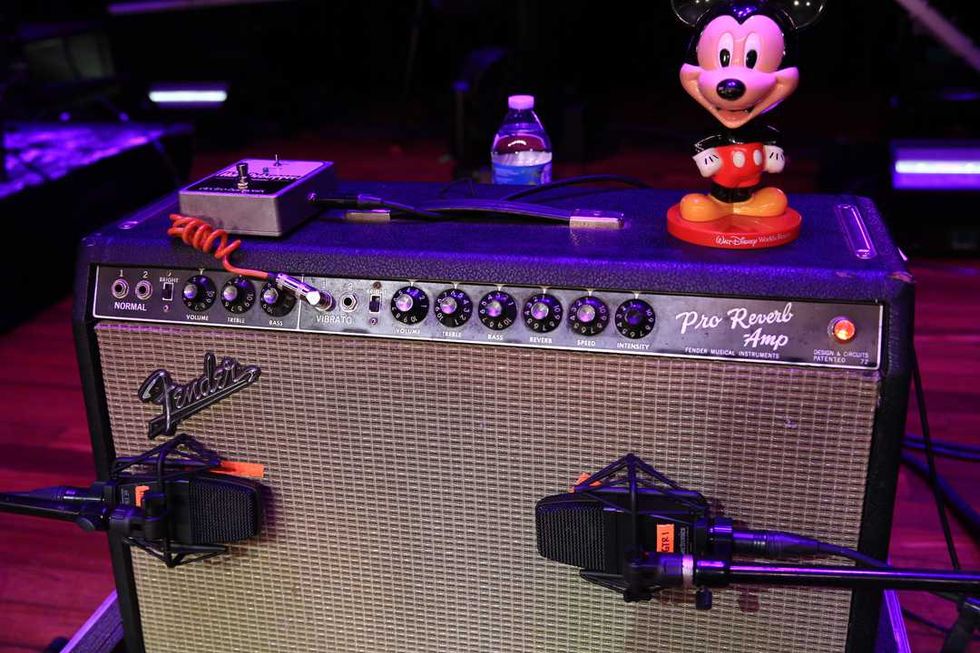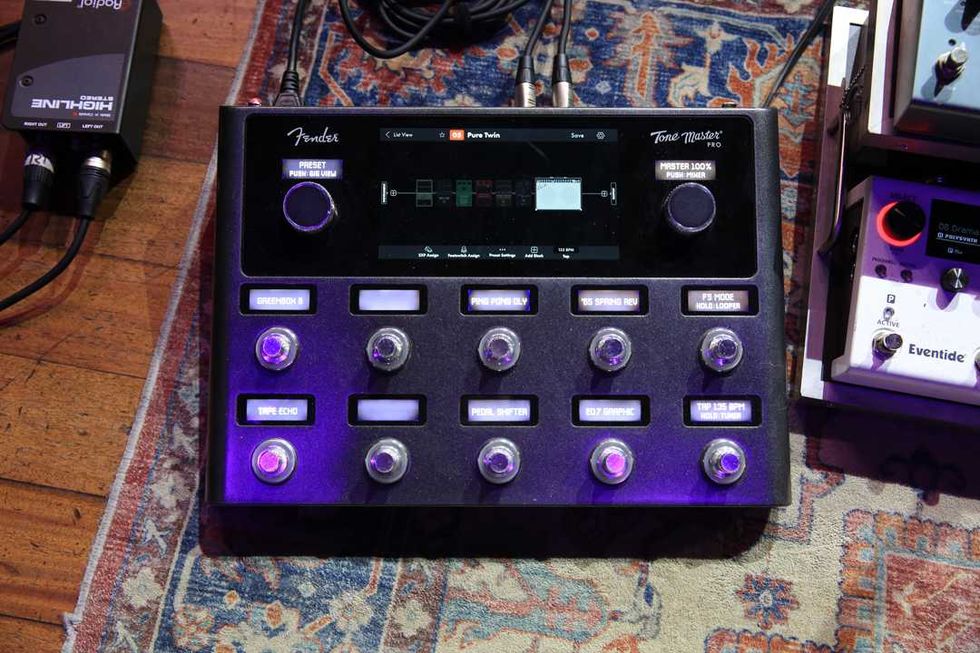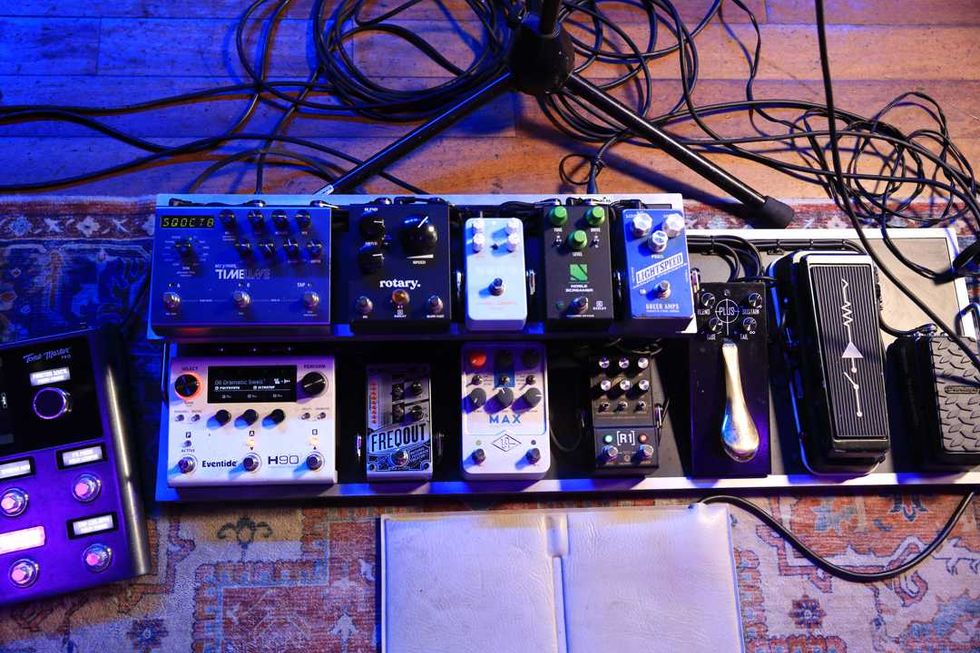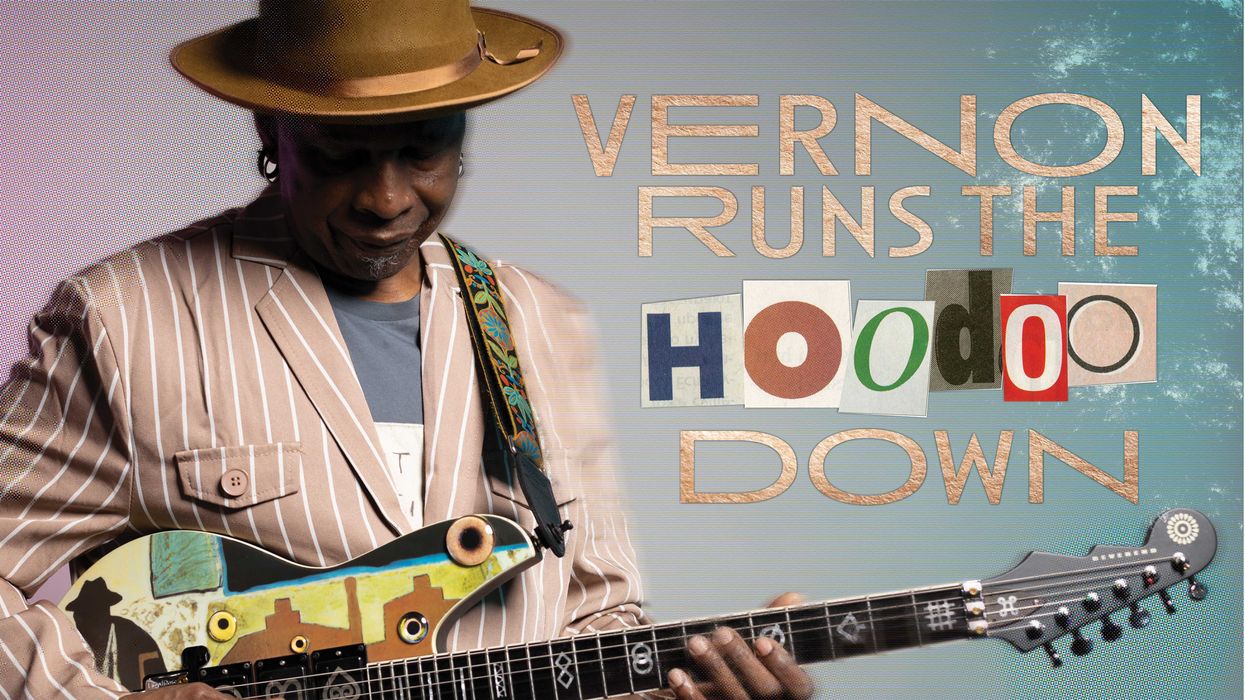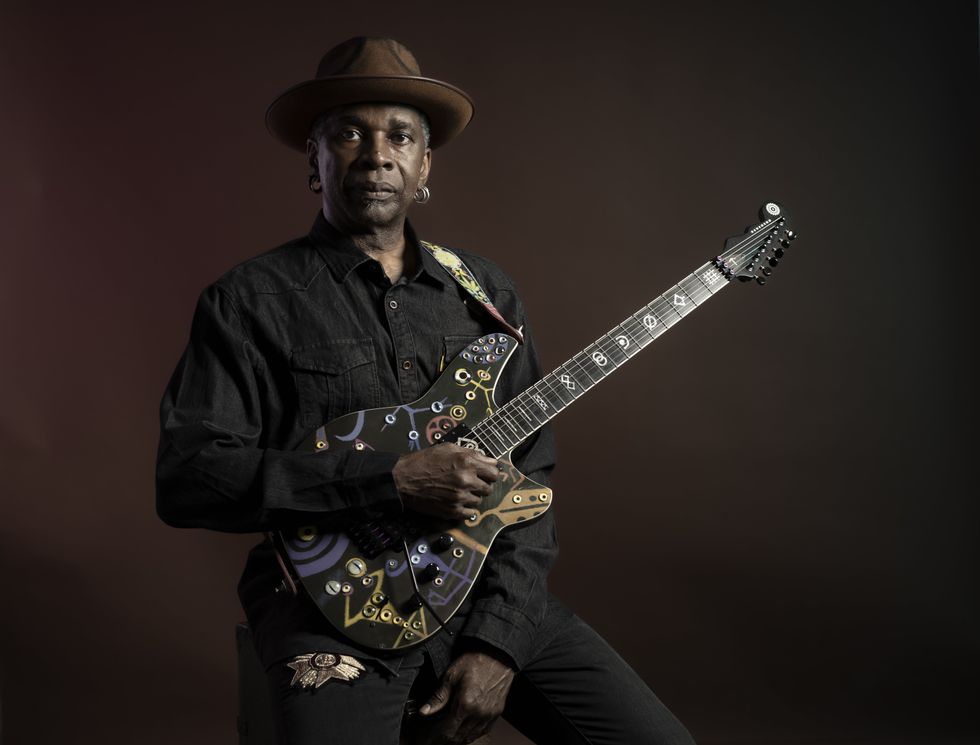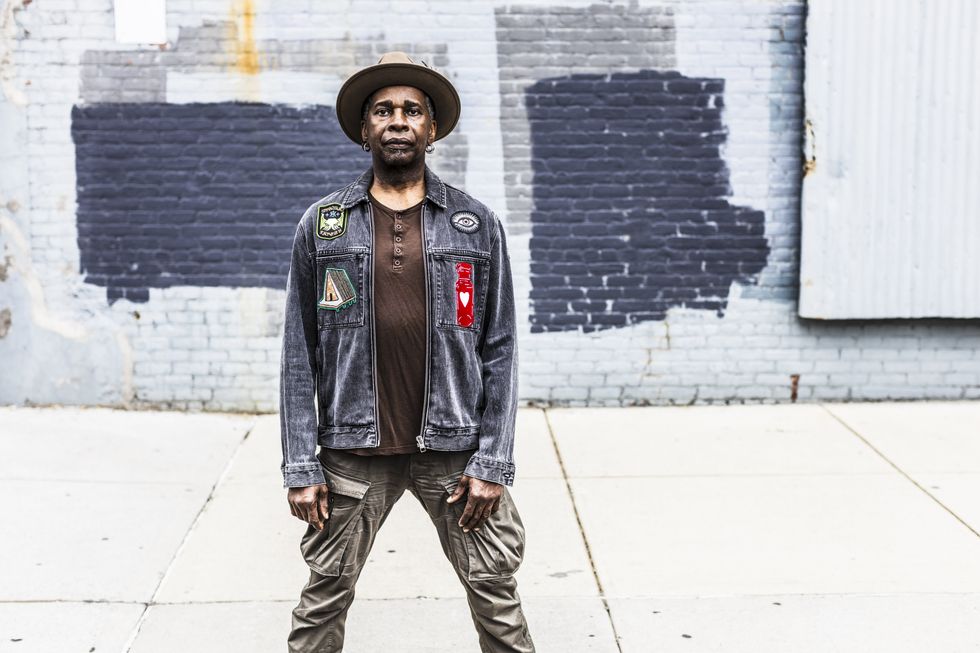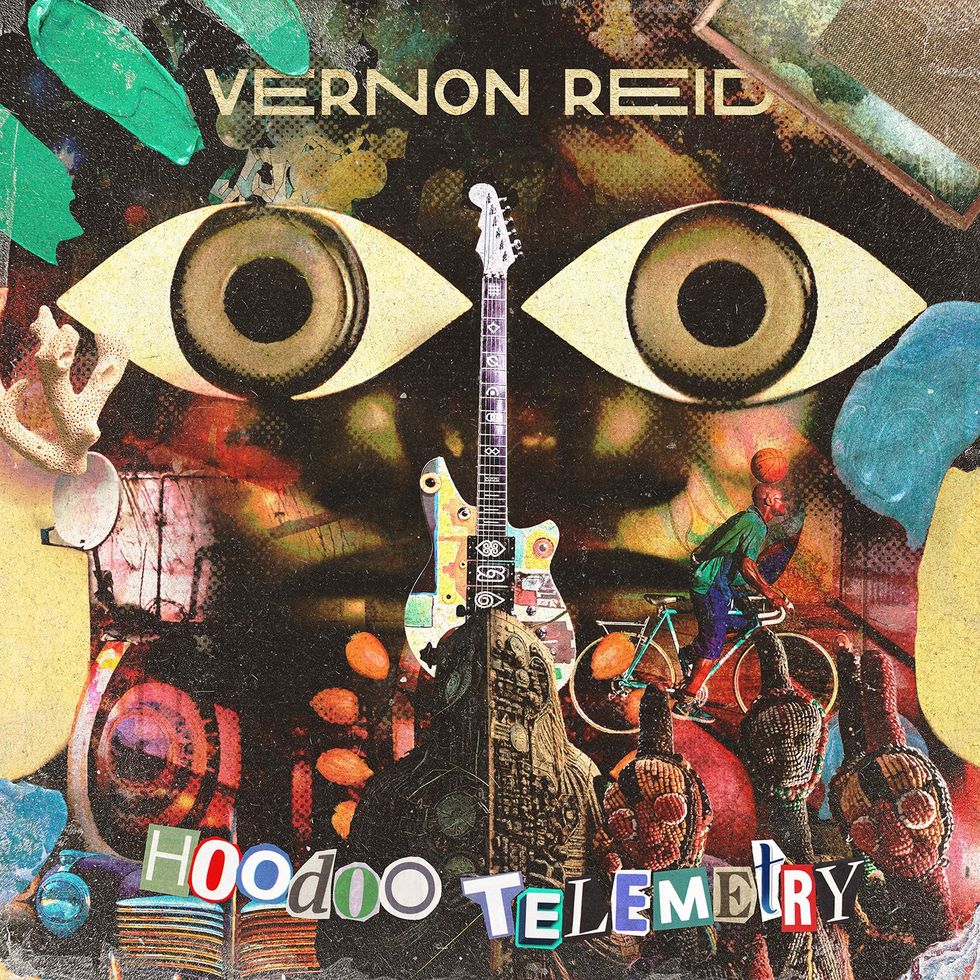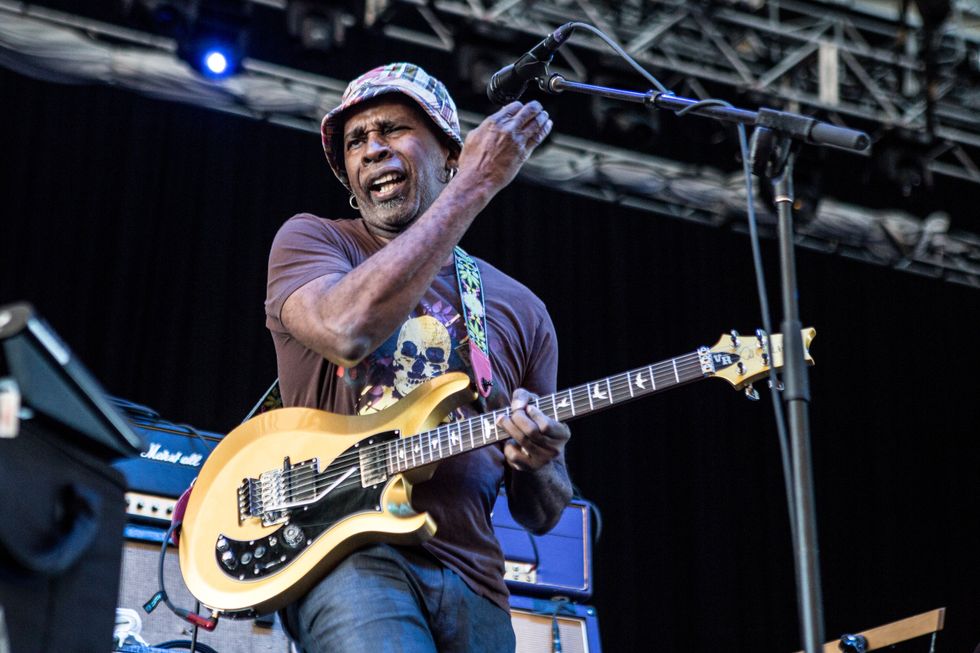Horsegirl guitarists Nora Cheng and Penelope Lowenstein are back in their hometown of Chicago during winter break from New York University, where they share an apartment with drummer Gigi Reece. They’re both in the middle of writing papers. Cheng is working on one about Buckminster Fuller for a city planning class, and Lowenstein is untangling Austrian writer Ingeborg Bachmann’s short story, “Three Paths to the Lake.”
“It was kind of life-changing, honestly. It changed how I thought about womanhood,” Lowenstein says over the call, laughing a bit at the gravitas of the statement.
But the moment of levity illuminates the fact that big things are happening in their lives. When they released their debut album, 2022’s Versions of Modern Performance, the three members of Horsegirl were still teenagers in high school. Their new, sophomore record, Phonetics On and On, arrives right in the middle of numerous first experiences—their first time living away from home, first loves, first years of their 20s, in university. Horsegirl is going through changes. Lowenstein notes how, through moving to a new city, their friendship has grown, too, into something more familial. They rely on each other more.
“If the friendship was ever taking a toll because of the band, the friendship would come before the band, without any doubt.”–Penelope Lowenstein
“Everyone's cooking together, you take each other to the doctor,” Lowenstein says. “You rely on each other for weird things. I think transitioning from being teenage friends to suddenly working together, touring together, writing together in this really intimate creative relationship, going through sort of an unusual experience together at a young age, and then also starting school together—I just feel like it brings this insane intimacy that we work really hard to maintain. And if the friendship was ever taking a toll because of the band, the friendship would come before the band without any doubt.”
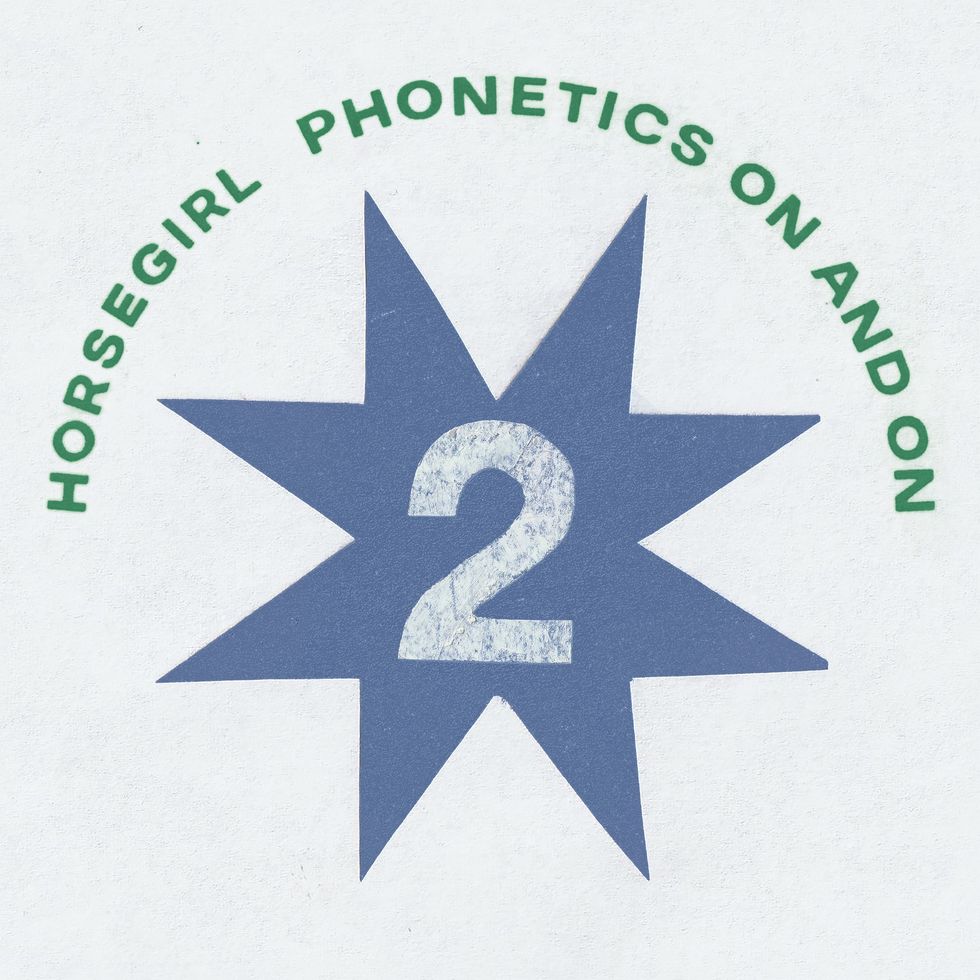
Horsegirl recorded their sophomore LP, Phonetics On and On, at Wilco’s The Loft studio in their hometown, Chicago.
These changes also include subtle and not-so-subtle shifts in their sophisticated and artful guitar-pop. Versions of Modern Performance created a notion of the band as ’90s college-rock torchbearers, with reverb-and-distortion-drenched numbers that recalled Yo La Tengo and the Breeders. Phonetics On and On doesn’t extinguish the flame, but it’s markedly more contemporary, sacrificing none of the catchiness but opting for more space, hypnotic guitar lines, and meditative, repeated phrases. Cheng and Lowenstein credit Welsh art-pop wiz Cate Le Bon’s presence as producer in the studio as essential to the sonic direction.
“On the record, I think we were really interested in Young Marble Giants—super minimal, the percussiveness of the guitar, and how you can do so much with so little.”–Nora Cheng
“We had never really let a fourth person into our writing process,” Cheng says. “I feel like Cate really changed the way we think about how you can compose a song, and built off ideas we were already thinking about, and just created this very comfortable space for experimentation and pushed us. There are so many weird instruments and things that aren't even instruments at [Wilco’s Chicago studio] The Loft. I feel like, definitely on our first record, we were super hesitant to go into territory that wasn't just distorted guitar, bass, and drums.”
Nora Cheng's Gear
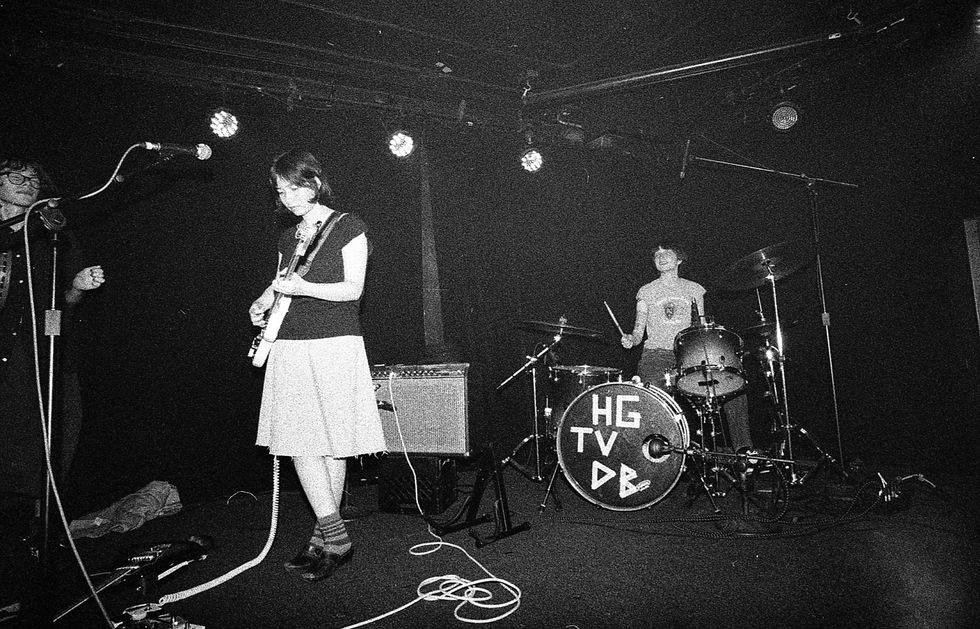
Nora Cheng says that letting a fourth person—Welsh artist Cate Le Bon—into the trio’s songwriting changed how they thought about composition.
Photo by Braden Long
Effects
- EarthQuaker Devices Plumes
- Ibanez Tube Screamer
- TC Electronic Polytune
Picks
- Dunlop Tortex .73 mm
Phonetics On and On introduces warm synths (“Julie”), raw-sounding violin (“In Twos”), and gamelan tiles—common in traditional Indonesian music—to Horsegirl’s repertoire, and expands on their already deep quiver of guitar sounds as Cheng and Lowenstein branch into frenetic squonks, warped jangles, and jagged, bare-bones riffs. The result is a collection of songs simultaneously densely textured and spacious.
“I listen to these songs and I feel like it captures the raw, creative energy of being in the studio and being like, ‘Fuck! We just exploded the song. What is about to happen?’” Lowenstein says. “That feeling is something we didn’t have on the first record because we knew exactly what we wanted to capture and it was the songs we had written in my parents’ basement.”
Cheng was first introduced to classical guitar as a kid by her dad, who tried to teach her, and then she was subsequently drawn back to rock by bands like Cage The Elephant and Arcade Fire. Lowenstein started playing at age 6, which covers most of her life memories and comprises a large part of her identity. “It made me feel really powerful as a young girl to know that I was a very proficient guitarist,” she says. The shreddy playing of Television, Pink Floyd’s spacey guitar solos, and Yo La Tengo’s Ira Kaplan were all integral to her as Horsegirl began.
Penelope Lowenstein's Gear
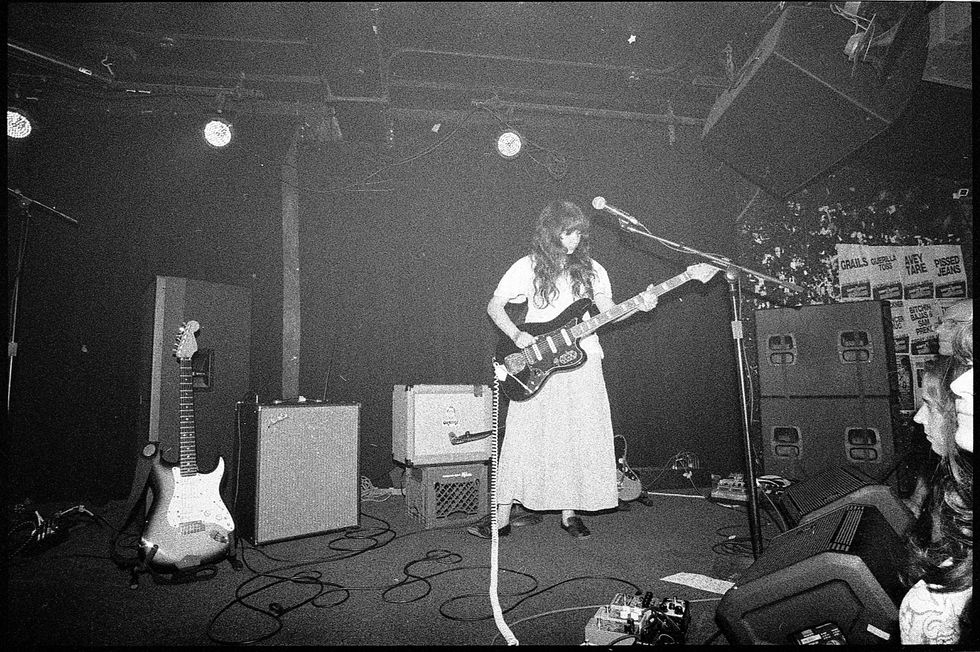
Penelope Lowenstein likes looking back at the versions of herself that made older records.
Photo by Braden Long
Effects
- EarthQuaker Westwood
- EarthQuaker Bellows
- TC Electronic PolyTune
Picks
- Dunlop Tortex 1.0 mm
Recently, the two of them have found themselves influenced by guitarists both related and unrelated to the type of tunes they’re trading in on their new album. Lowenstein got into Brazilian guitar during the pandemic and has recently been “in a Jim O’Rourke, John Fahey zone.”
“There’s something about listening to that music where you realize, about the guitar, that you can just compose an entire orchestra on one instrument,” Lowenstein says. “And hearing what the bass in those guitar parts is doing—as in, the E string—is kind of mind blowing.”
“On the record, I think we were really interested in Young Marble Giants—super minimal, the percussiveness of the guitar, and how you can do so much with so little,” Cheng adds. “And also Lizzy Mercier [Descloux], mostly on the Rosa Yemen records. That guitar playing I feel was very inspiring for the anti-solo, [a technique] which appears on [Phonetics On and On].”This flurry of focused discovery gives the impression that Cheng and Lowenstein’s sensibilities are shifting day-to-day, buoyed by the incredible expansion of creative possibilities that setting one’s life to revolve around music can afford. And, of course, the energy and exponential growth of youth. Horsegirl has already clocked major stylistic shifts in their brief lifespan, and it’s exciting to have such a clear glimpse of evolution in artists who are, likely and hopefully, just beginning a long journey together.
“There’s something about listening to that music where you realize, about the guitar, that you can just compose an entire orchestra on one instrument.”–Penelope Lowenstein
“In your 20s, life moves so fast,” Lowenstein says. “So much changes from the time of recording something to releasing something that even that process is so strange. You recognize yourself, and you also kind of sympathize with yourself. It's a really rewarding way of life, I think, for musicians, and it's cool that we have our teenage years captured like that, too—on and on until we're old women.”
YouTube It
Last summer, Horsegirl gathered at a Chicago studio space to record a sun-soaked set of new and old tunes.
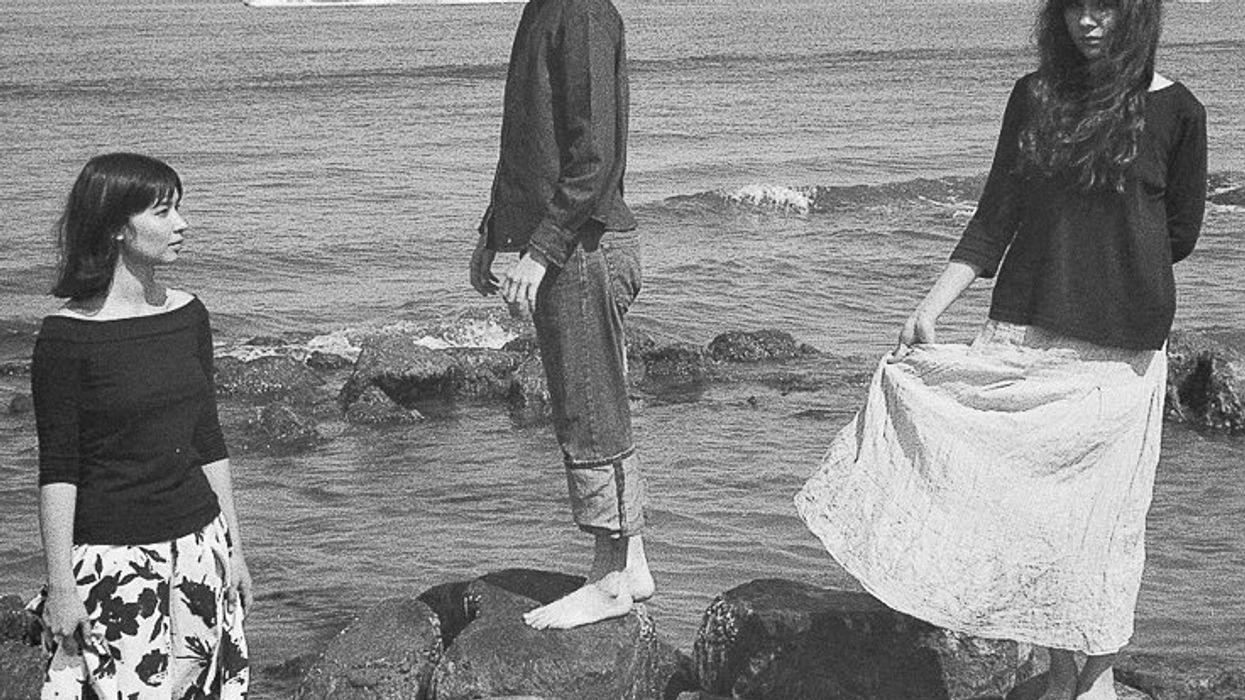
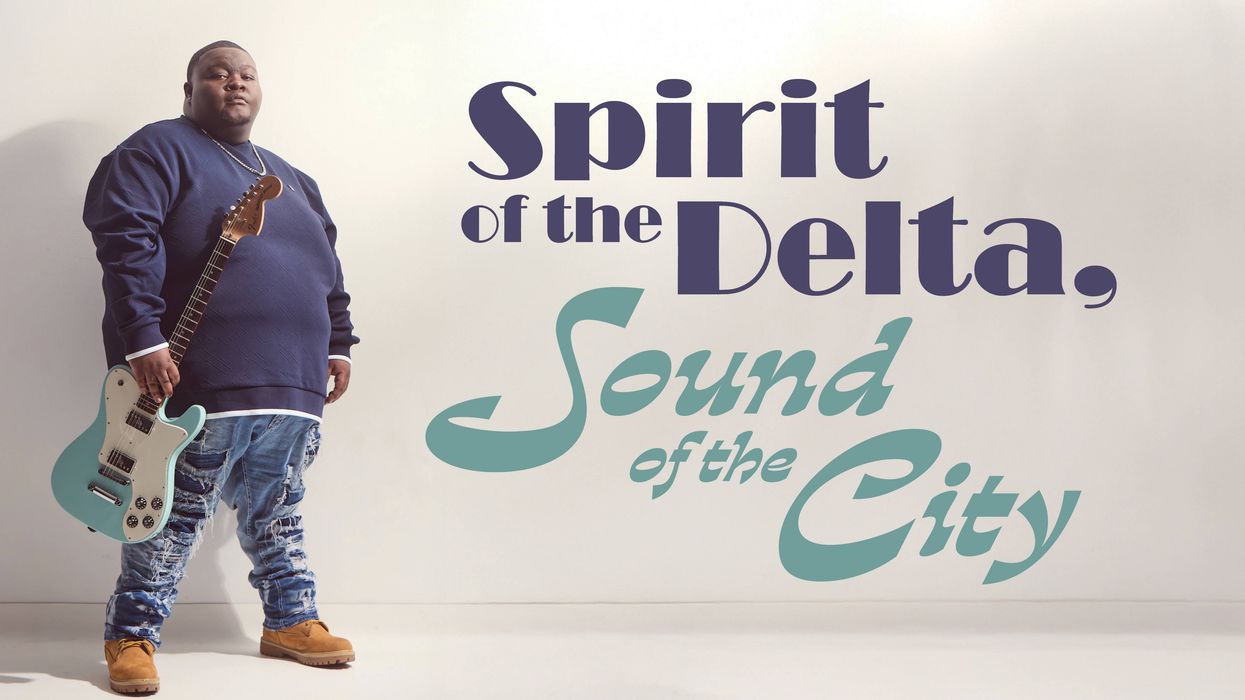
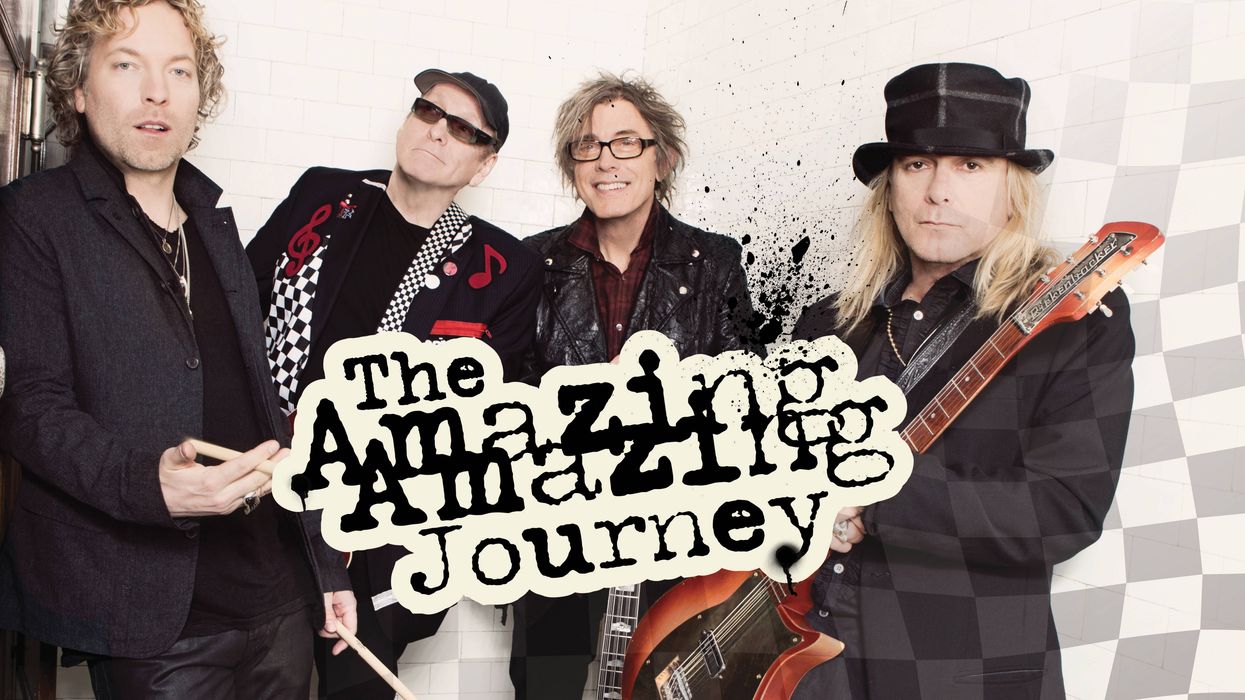
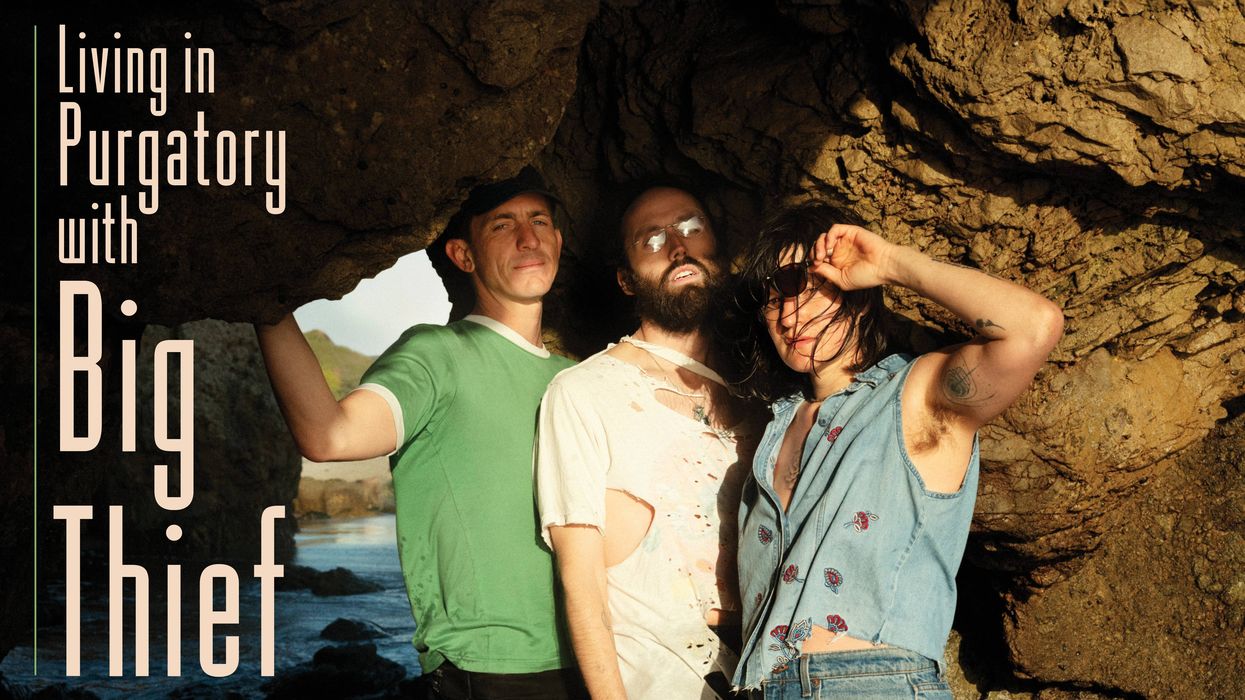
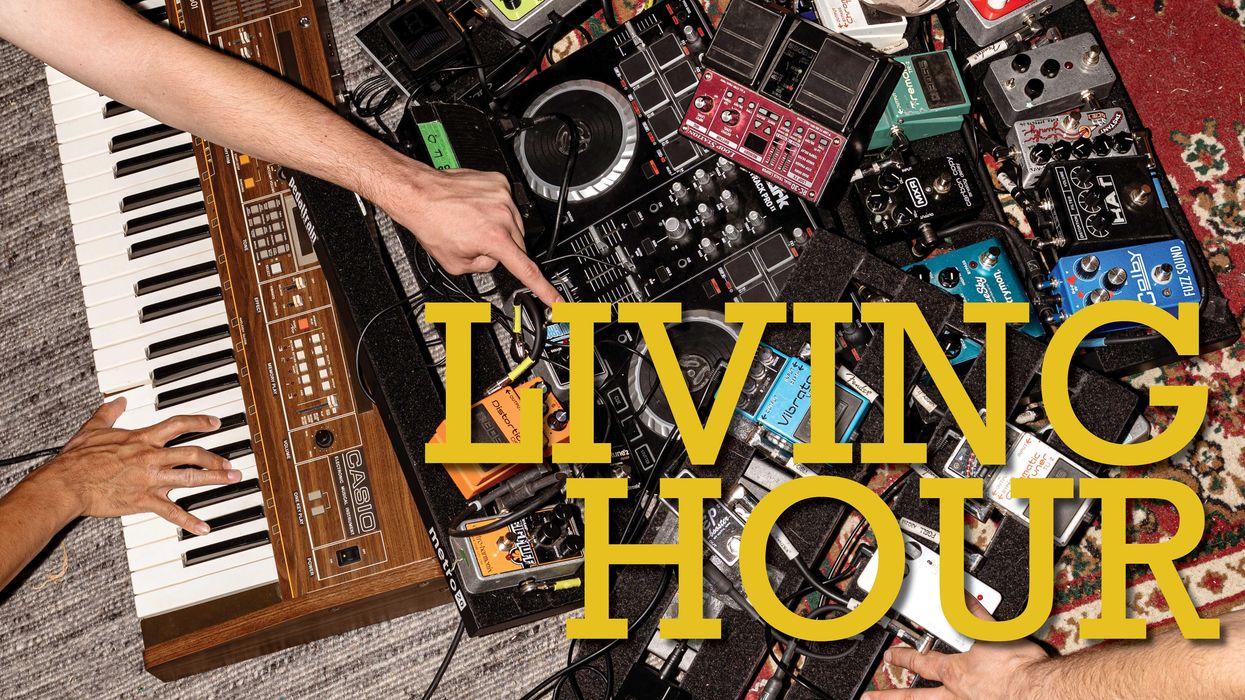
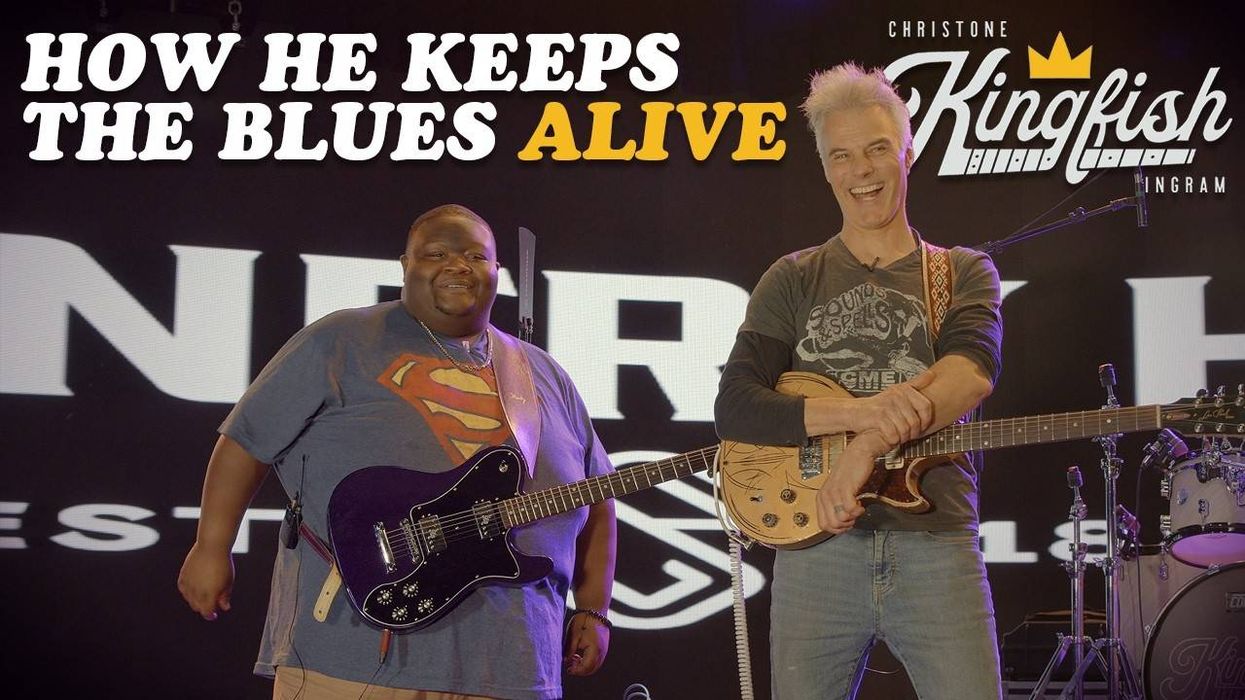
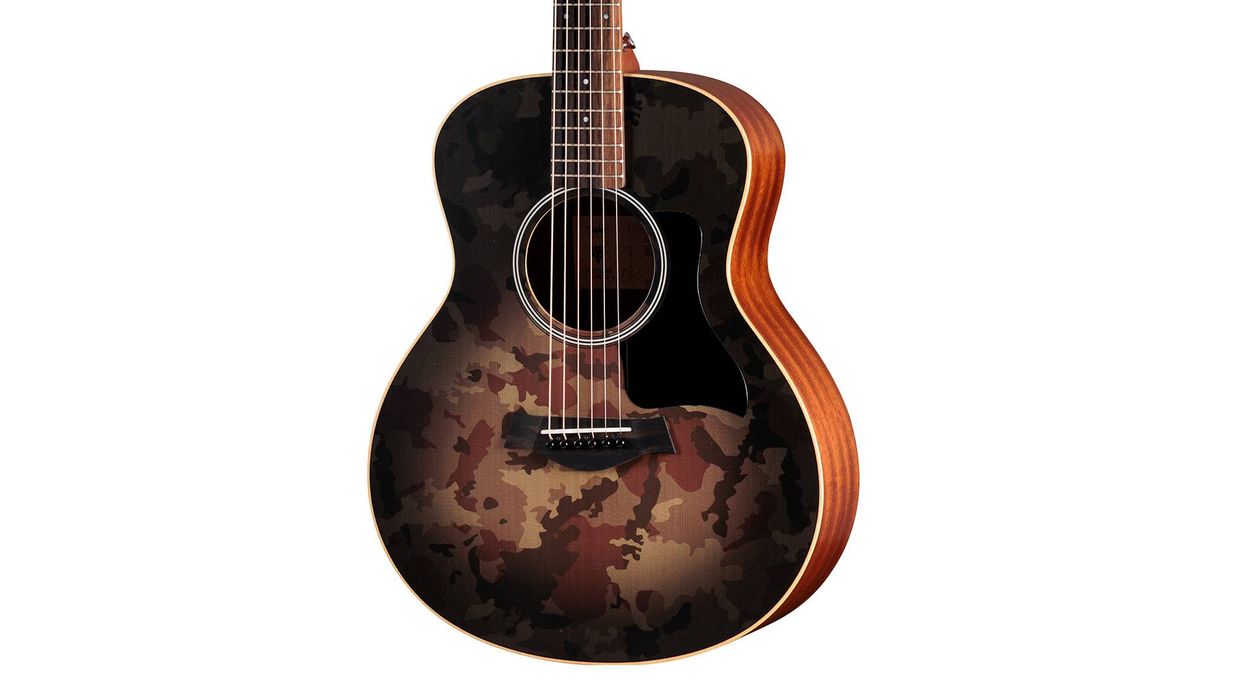


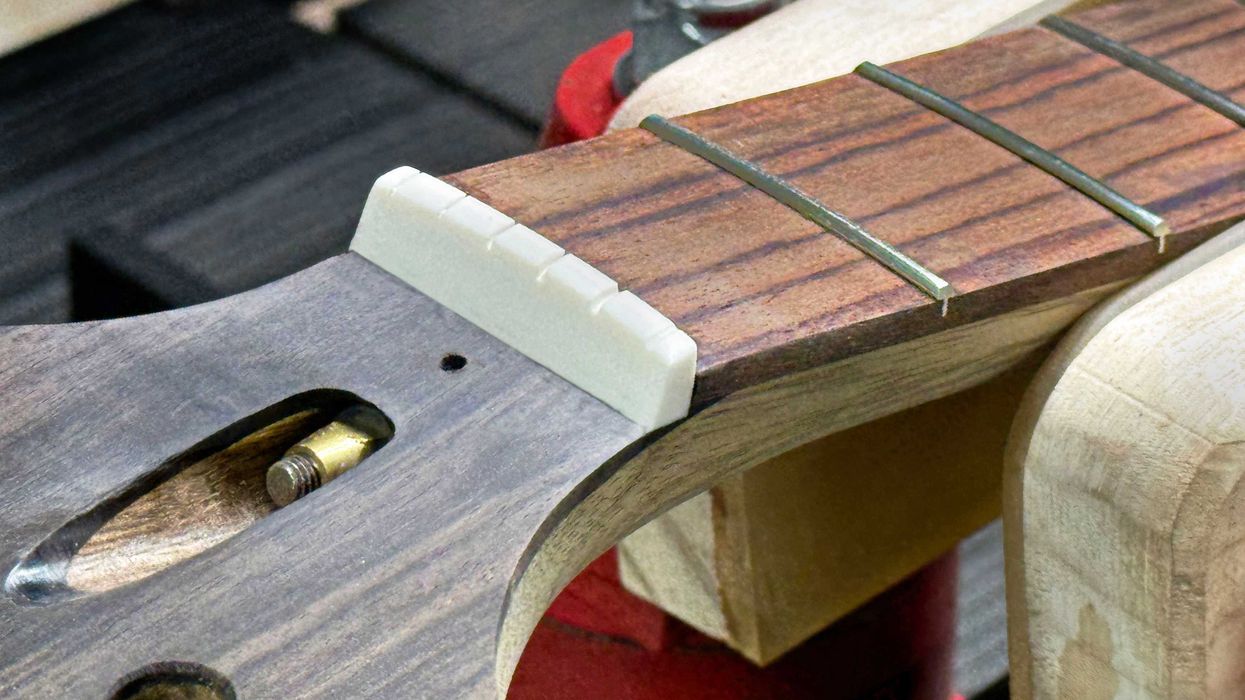
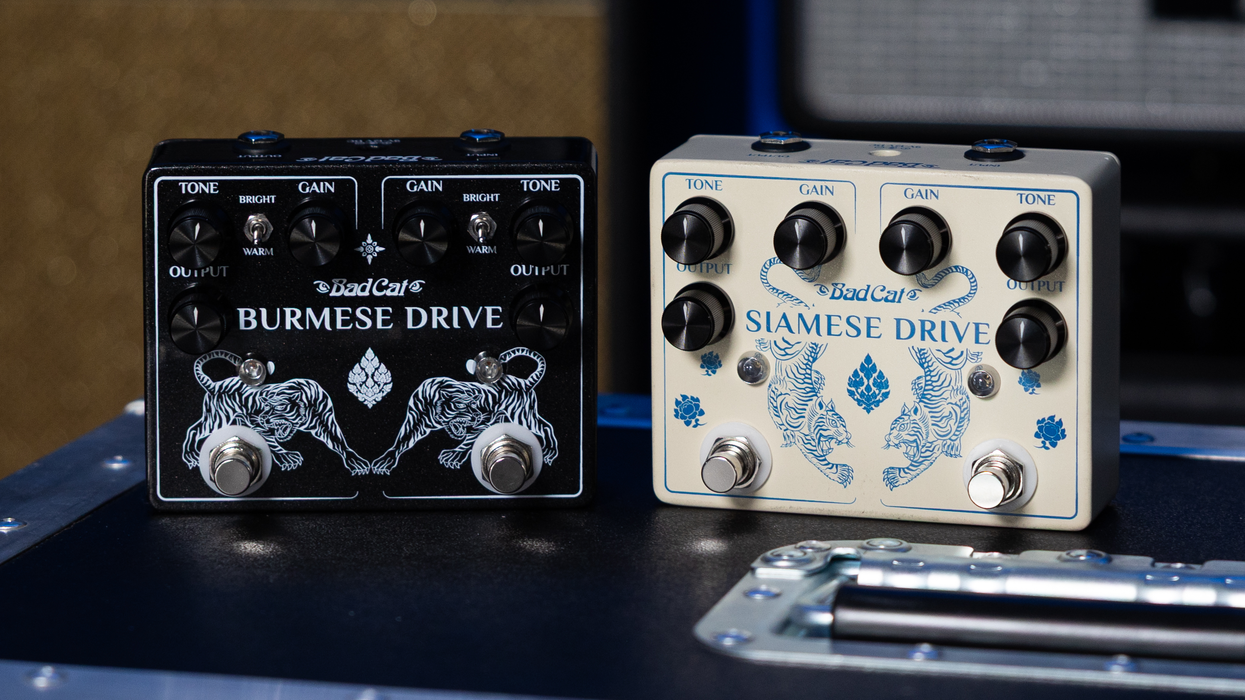
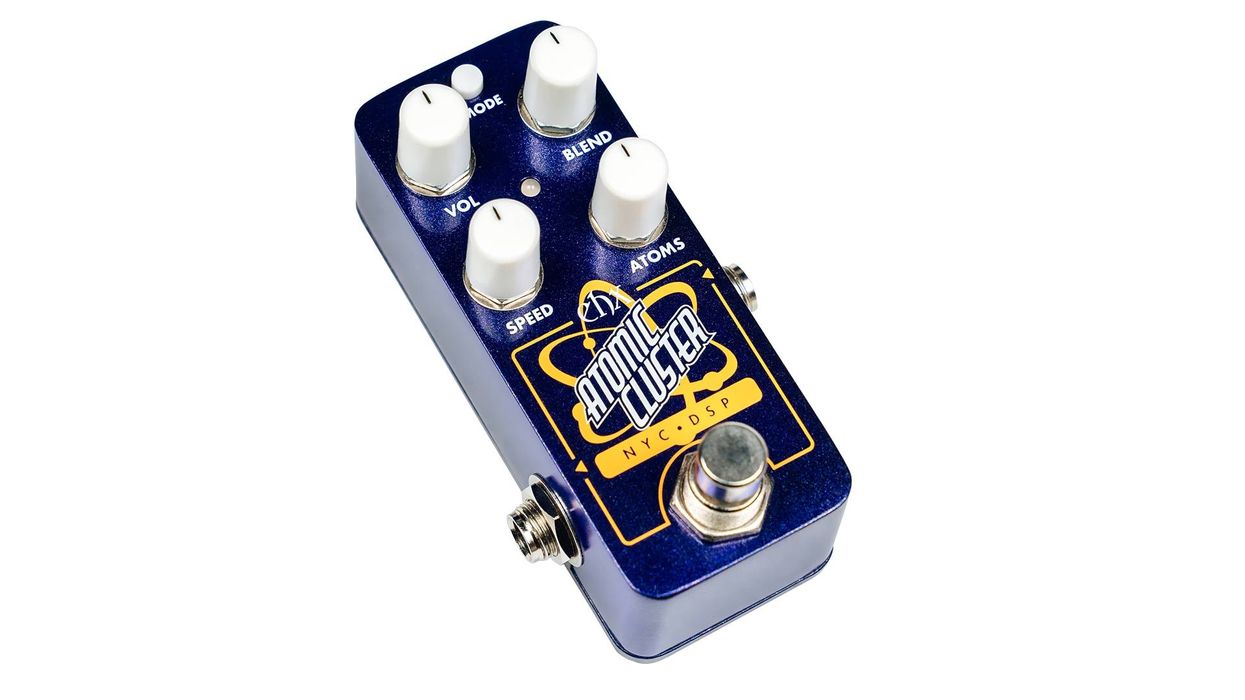
![Rig Rundown: AFI [2025]](https://www.premierguitar.com/media-library/youtube.jpg?id=62064741&width=1245&height=700&quality=70&coordinates=0%2C0%2C0%2C0)












 Shop Scott's Rig
Shop Scott's Rig![Devon Eisenbarger [Katy Perry] Rig Rundown](https://www.premierguitar.com/media-library/youtube.jpg?id=61774583&width=1245&height=700&quality=70&coordinates=0%2C0%2C0%2C0)
